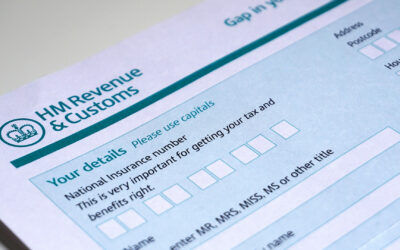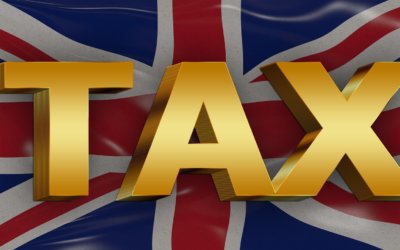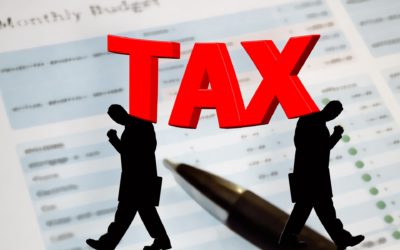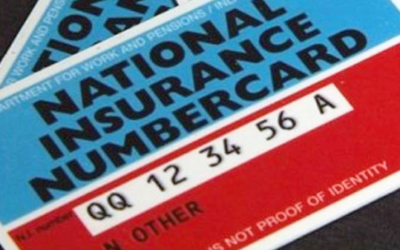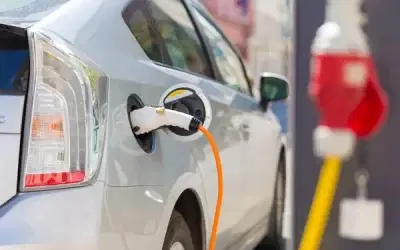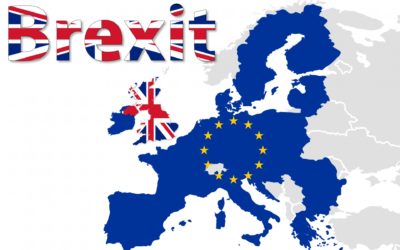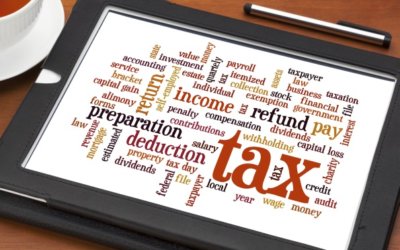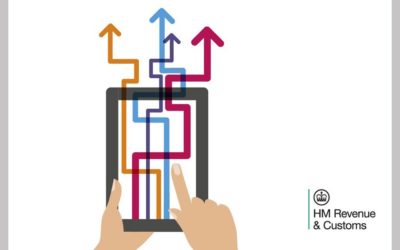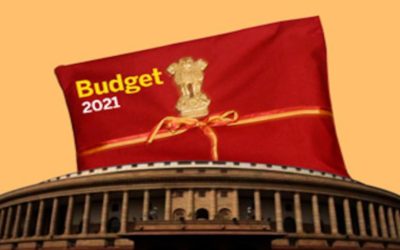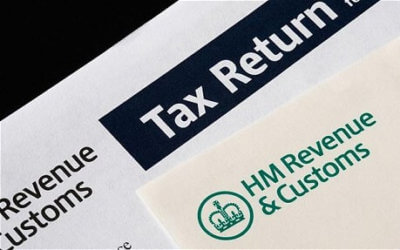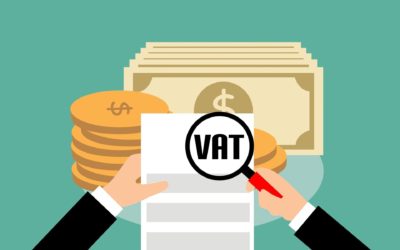Insights
Our latest news, articles, tips & resources
Two new products for UK savers
Two new savings products have been announced, aimed at supporting growth of UK companies and encouraging a culture of saving. Individuals can currently deposit up to £20,000 each year into an individual savings account (ISA). This is a sensible move as any interest...
NLW and NMW increased
The national living wage (NLW) will increase by 9.8% to £11.44 per hour from April 2024. The higher rate will also apply to 21 and 22-year-olds for the first time. The NLW currently applies to workers aged 23 and above and stands at £10.42 per hour. Workers under the...
Get ready for changes to company law
In October 2023, the Economic Crime and Corporate Transparency Act became law. This Act introduces the biggest change to the way Companies House operates since corporate registrations were established in 1844. The Government’s stated aim is to give Companies House the...
Latest on MTD ITSA – simplification changes
A simplification of the MTD ITSA processes is to be introduced in 2026 including no EOPS, cumulative submissions each quarter and restrictions for complex situations. Taxpayers with turnover over £50,000 will be brought into MTD ITSA from April 2026. The £50,000...
Charging your electric company car at home
HMRC has updated its Employment Income Manual to bring the guidance on charging electric company cars at home in line with the legislation. Until now, the guidance in the Employment Income Manual (EIM23900) has contradicted the legislation in advising that...
Two new R&D forms
HMRC has introduced two new measures to tackle the rise in fraudulent research and development (R&D) claims. Claim notification form For accounting periods beginning on or after 1 April 2023, a digital pre-notification form is required to inform HMRC in advance of...
HMRC demands more data
HMRC has set out its intention to collect data relating to trade sectors, locations, occupations, hours worked, shareholdings and dividends paid, and self-employed trading dates. Draft legislation has been released that provides for regulations to adjust the personal...
Cash basis to replace accruals
The cash basis is to replace accruals for the self-employed as the standard tax reporting method for the tax year 2024-25 (first year of tax year accounting). From April 2024, as part of a move to simplify calculation of taxable profits for Making Tax Digital, all...
National insurance rates cut
The headline news from the Autumn Statement was the reduction of primary Class 1 and Class 4 NIC and the removal of compulsory Class 2 NIC. The main rate of primary Class 1 NIC paid by employees on earnings between £12,570 and £50,270 per year will be reduced from 12%...
Relaxation of self assessment rules for child benefit
In families where child benefit is claimed, it is important that the individual or couple receiving the child benefit keeps a close eye on their income level. If the higher earner has income of more than £50,000, some or all of the child benefit received will need to...
Deadline extended for voluntary NIC payments
HMRC has given taxpayers an extra two years to plug any gaps in their NIC record from April 2006. The deadline for making voluntary contributions has been extended from 5 April 2023, as previously reported, until 5 April 2025. The deadline was first extended to 31...
Sales till manipulation
The traditional way to hide sales from HMRC is to take payment in cash and not put it through the books. Nowadays technology helps dishonest traders to hide sales by using electronic sales suppression (ESS) software. The sale is not recorded on the normal till record...
Avoid payroll problems with duplicated employees
When HMRC asks for more PAYE than you have deducted from your staff's wages, it is often the result of double-counting somewhere in the process. A persistent bug in the PAYE system is caused by the HMRC computer creating a duplicate employment record which it then...
Student loans, property and pensions
Student loan repayments (SLR) are normally deducted under PAYE from employment income so many people incorrectly assume that SLR are not due on other 'unearned income' such as rent or pensions. SLR will in fact be payable where the unearned income exceeds £2,000 per...
Providing for retirement
The changes to the pension rules announced in the Spring Budget were designed to dissuade higher earners from retiring early to avoid pension charges on high contributions but the new rules could have the opposite effect. Individuals can now contribute up to £60,000...
Excess mileage payments
Petrol and diesel pump prices are high but the tax-free mileage rates payable to employees who use their own vehicles for business have not been adjusted for over a decade. The rates are: Cars and vans: 45p per mile for the first 10,000 miles per tax year, 25p above...
Settle tax with a PSA
Occasionally you may reward your employees with something special such as a holiday or a hamper. If the value exceeds the tax-free amount permitted under the rules for say long service awards, trivial benefits or staff suggestions it will be taxable. To avoid your...
All change for capital allowances
The 'super deduction' capital allowances, which provide companies with a deduction of 130% of the cost of new plant and machinery, ended for expenditure incurred after 31 March 2023 as scheduled. The Chancellor proposed a new system of full expensing of the cost of...
Allowances frozen and cut
It’s easy to forget the hidden tax rises which are created by frozen and cut allowances, so here is a quick reminder. The tax-free personal allowance will be frozen at £12,570 for six years from 2021/22 to 2027/28 and the related marriage allowance is fixed at £1,260...
How to cope with the corporation tax rise
The Budget confirmed that the main rate of corporation tax will rise from 19% to 25% on 1 April 2023, but the small profits tax rate will stay at 19% where the company's profits do not exceed £50,000. The Chancellor failed to highlight that the effective marginal rate...
New VAT late-payment penalties
In addition to the new VAT late-filing penalties there is also a new system of penalties for late paid VAT. For VAT periods beginning on and after 1 January 2023, you will have up to 15 days to pay your VAT, or arrange a time to pay agreement, before HMRC charge a...
New VAT late-filing penalties
All VAT returns must now be submitted digitally using MTD compatible software (unless the business has an exemption) so the VAT penalties have been revised to fit with this new regime. If you submit a VAT return late for a period starting on or after 1 January 2023,...
R&D tax relief curtailed for some
Last Autumn the Chancellor cut the enhanced deduction for expenditure by SME companies on R&D projects from an extra 130% to 86% and the payable tax credit from 14.5% of the loss surrendered to 10%. These new rates will come into effect for qualifying R&D...
Coping with an HMRC nudge
Marketing companies know that personal letters sent directly to customers are more powerful than broadcast or printed adverts. HMRC is now using this technique to recover unpaid tax. HMRC matches data from a wide range of sources to tax returns and will write to...
MTD for income tax delayed again – what’s the latest
Making tax digital for income tax self-assessment (MTD ITSA) was set to take effect from 6 April 2024. This has been postponed until 6 April 2026. From this new date, the new regime will require sole traders and individual landlords to keep their business records...
Largest ever National Minimum Wage rise
The national minimum wage (NMW) and national living wage (NLW) rates are due to rise significantly for pay periods starting on and after 1 April 2023. See below for the new rates. Workers aged 23 and above - hourly rate from 1 April 2023 - £10.42 (currently £9.50)...
Recognising capital losses
The annual capital gains exemption (currently £12,300) may cover most of the capital gains that you make on your share portfolio. However, that exemption will be cut to £6,000 on 6 April 2023 and £3,000 in April 2024. If you are planning to make large capital gains in...
Planning dividends for 2023
Owners and directors of family businesses often take a small salary from the company and any extra funds as dividends. Other family members may also hold shares in the company and receive a dividend each year. Currently, the first £2,000 of dividends received by each...
Mind the NIC gap
Do you know whether your national insurance contributions (NIC) record is complete and correct? You can check your NIC record over your entire working life on your online personal tax account (www.gov.uk/personal-tax-account). This will also provide an estimate of the...
Employers – are you ready for the NI changes
As an employer you’ll soon need to implement the new NI rates. What actions should you take to ensure that your payroll software can cope? The 6 November is the date on which the new reduced NI rates apply. However, the new rates only apply when you run your payroll...
NIC cut in November
One of the few changes announced in the now notorious mini-budget was the reversal of the 1.25% increases in national insurance contribution rates, which were introduced from 6 April 2022. The rates of Class 1 NIC are taken back to the levels that were in place on 5...
Loans to employees
Many employers will advance modest loans to employees to meet upfront costs which they necessarily incur to enable them to work, such as the cost of a travel season ticket or a deposit for childcare costs. Such loans can also be provided to help towards other...
IR35: contractors delighted by changes
In his recent mini-budget, the Chancellor said that he will abolish the hugely complicated off-payroll working rules from 6 April 2023. These rules require large businesses and public sector bodies to decide whether the contractors that they engage act as employees...
Using your personal tax account
A surprising number of people don’t know that they have an online HMRC personal tax account (PTA). Your PTA is a useful source of information about your personal tax position and allows you to communicate with HMRC quickly and easily. For example, you can check your...
Cryptoassets are taxable
In uncertain times people instinctively look for alternative ways to invest and some may have chosen cryptoassets such as Bitcoin and non-fungible tokens. If you have decided to go digital with your investments, think about how the profit or loss you make on these...
Changing NIC in July
The rates for national insurance contributions (NIC) increased by 1.25 percentage points for everyone on 6 April 2022. From 6 July, the NIC starting threshold will rise to £12,570 per year (£1,048 per month) for employees. This means that some lower paid employees...
Hospitality VAT rates increase
The hospitality and tourist sectors have been supported through the Covid-19 pandemic by being able to pay a reduced amount of VAT to HMRC in respect of most sales. The reduced VAT rate was 5% from 15 July 2020 to 30 September 2021 and 12.5% from 1 October 2021 to 31...
VAT on contract termination fees
Contract termination fees can be a bitter pill to swallow when you just want out of an expensive agreement. What's worse is that some suppliers will charge VAT on top of the cancellation fee, while others will not. The law has been a bit of a mess, but HMRC has laid...
HMRC criticised over rate rise
HMRC has been accused of imposing an unfair interest rate rise on late tax payments, while the rate paid when it refunds miscalculated and overpaid tax has remained frozen at just 0.5%. Interest on late payments increased from 2.75% to 3% following the Bank of...
There’s still time to apply for COVID 19 support grants
Businesses are being encouraged to apply for remaining coronavirus (COVID-19) grant funding from local authorities. Hospitality, leisure and accommodation businesses can still apply for one-off cash grants of up to £6,000 through the Omicron Hospitality and Leisure...
Auto-enrolment pension thresholds frozen again
Each year, the government reviews the level of earnings at which employers must include their employees in statutory pension schemes. So, what’s the plan for tax year 2022/23? All employers have to comply with auto-enrolment if they have any employees who meet the...
Benefits of electric vehicles
The current fuel crisis will no doubt encourage many people to consider buying an electric car. Drivers of company-owned electric vehicles will find it particularly rewarding as the taxable benefit for using an electric company car is currently just 1% of its list...
Watch out for a new QR code scam
There are constant attempts to trick people that communications are from HMRC and therefore giving away personal information to fraudsters. Recently, a new scam involving QR codes has been identified. HMRC has updated it guidance on QR codes to help taxpayers avoid...
Defeat for HMRC in TV presenter IR35 row
Several high profile TV presenters have been under the spotlight in respect of whether IR35 applies to their working arrangements. The latest of these resulted in a loss for HMRC. So what can we learn from this case? Rejecting HMRC’s assertions that IR35 applies...
Final claims for the Statutory SSP rebate scheme
The Statutory Sick Pay Rebate Scheme will close on 17 March 2022. Employers have until 24 March 2022 to submit any new claims for absence periods up to 17 March 2022, or to amend claims they have already submitted. Employers will no longer be...
Use your basic rate tax band
Personal tax rates have been held steady for a few years, so it made no difference whether you extracted funds from your company in one tax year or the next. This is no longer the case as on 6 April 2022 the tax payable on dividends and the national insurance...
New year brings new Brexit customs rules
To all intents and purposes, the UK left the EU on 31 December 2020. However, some changes to rules were delayed in order to ease the transition. From 1 January 2022, there are additional customs rules to be aware of for businesses trading with the bloc. What's...
COVID support grants for the hospitality and leisure sector
Businesses in the hospitality and leisure sectors in England that have been impacted by Omicron are now able to access grants of up to £6,000 as a one-off support payment from their Local Authority. Grants will be awarded per premises depending on rateable...
HMRC announces Self Assessment one month filing reprieve
Late filing and late payment penalties are to be waived for one month for Self Assessment taxpayers. Please read carefully for details ……The standard deadline for individuals filing a tax return is 31 January. Failure to meet this deadline usually means a £100...
National insurance rises for all
Two areas in the public sector that need additional funding are the NHS and social care. To pay for these services, the Government is raising a new tax: the health and social care (HSC) levy. This will be charged at 1.25% of income or profits for the employed and...
Universal credit claimants to keep more wages
Many employed and self- employed people claim Universal Credit as they have low or unpredictable levels of income. It provides a much-needed top-up to their earnings but the benefit is reduced as the worker earns more due to the Universal Credit taper rate. Currently...
Changes in self-employed tax returns
Making tax digital for income tax self-assessment (MTD ITSA) will replace the self-assessment tax return for unincorporated businesses from April 2024 for sole traders and from April 2025 for most partnerships. The MTD ITSA regulations will require you to keep records...
Increases in income tax on dividends
The tax payable on dividends is set to rise from 7.5% to 8.75% for basic rate taxpayers from 6 April 2022. Higher rate taxpayers will pay 33.75% (currently 32.5%) on dividends and additional rate taxpayers must budget for dividend tax of 39.35% (currently 38.1%)....
How to declare your child benefit
Child benefit is not taxable but sometimes needs to be declared on tax returns. Since 2013, the high income child benefit charge (HICBC) claws back some or all of the child benefit paid to families where the highest earner in the family has total income of £50,000 or...
Capital gains reporting pressure eased
If you sell a UK residential property subject to capital gains tax (CGT), you must report the gain and pay the tax within 30 days of the completion date of the deal. The report generally has to be done online through a UK property account which needs to be activated...
Business rates relief – recent announcements
High street shops, hospitality and leisure businesses were some of the hardest hit during the Covid-19 pandemic and many have not fully recovered. These businesses were granted 100% business rates relief during 2020/21 which continued until 30 June 2021 for properties...
Incentives for R&D
Research and development tax reliefs can be very generous for small companies, giving a deduction of 230% of qualifying costs. However, the categories of expenditure which qualify for R&D relief were defined over 20 years ago and do not include costs of a typical...
Capital investment encouraged
In the March 2021 Budget, the Chancellor announced a superdeduction scheme that provides a 130% deduction for the cost of new plant or equipment if it is purchased by a company before 1 April 2023. Expenditure on other new assets, such as fixtures and integral...
National minimum wage rate rises
The national living wage (NLW) will rise to £9.50 per hour for pay periods starting on and after 1 April 2022 along with the other national minimum wage rates. Since 6 April 2021, the NLW rate has applied to workers aged 23 and over. The apprentice rate will rise...
How to check worker employment status – lessons for businesses using freelancers
If you’re a business that uses freelancers, you should be careful to nail down their employment status from the start. Some of the key issues to consider are illustrated by a recent tax case taken to the First-Tier Tax Tribunal (FTT) - the case of Phillips v HMRC 2021...
Key things to do when employing staff for the first time
Here are the key things HMRC expects you to do when employing staff for the first time. Decide how much you are going to pay your employee. You must pay your employee at least the National Minimum Wage. Check if someone has the legal right to work in...
How to get an income tax refund from self-employed losses
Many self-employed people have made large losses in the tax year 2020/21, which exceed the profits made in the previous year and even the year before that. Those pandemic trading losses can be used to generate a tax refund by setting them against profits made from the...
MTD for VAT: crunch time
VAT registered businesses, with an annual turnover above the £85,000 VAT registration threshold, were required to comply with the making tax digital (MTD) regulations for VAT periods beginning on or after 1 April 2019. This means using MTD for VAT compliant software...
VAT changes for the hospitality sector
The hospitality and tourism sector has been enjoying a reduced rate of VAT (5%) since 15 July 2020. From 1 October 2021, the 5% VAT rate will increase to 12.5%, and on 1 April 2022 it will revert to the normal standard rate of 20%. This rate applies to most supplies...
Super capital allowances for companies
Companies can now claim 'super' capital allowances on the purchase of new plant and machinery, and to a lesser extent on certain new fixtures and fittings. These super allowances give a company enhanced corporation tax relief of 130% of the cost in the year of...
Fraud in tax repayments
You should be aware that some fraudsters have obtained SEISS grants by using innocent taxpayers' Government Gateway IDs and passwords. Once the ID has been proven to work, the fraudsters attempt to double their money by submitting false tax returns to claim tax...
VAT debt paid instalments
A year ago, at the start of the Covid-19 pandemic, the Government automatically deferred all VAT due to be paid to HMRC between 20 March to 30 June 2020. The direct debit to collect that VAT was not activated by HMRC and no interest or late payment surcharges have...
Ideal salary 2021/22
As the owner and director of your own company you decide how much salary to take each year. Paying yourself a small salary can be a good way to maintain your national insurance record to build up state benefit entitlements. In the tax year 2021/22, if you take a...
Fourth SEISS grant
Self-employed individuals will be able to apply for the fourth SEISS grant from late April, if they submitted their tax return for 2019-20 by midnight on 2 March 2021 (it was due by 31 January 2021). HMRC has asked for additional evidence from two categories of...
New off-payroll working rules for the private sector – now in force
The IR35 rules have been around for over 20 years but those rules have been redrawn and renamed ‘off-payroll working’ These rules have applied in the public sector since April 2017. Since then, public sector engagers (the end client) have determined whether...
Budget 2021 – An Overview
Chancellor Rishi Sunak made his Budget speech on 3 March 2021. Clearly, much has changed due to COVID 19. The UK economy has shrunk by 10% and we have the highest borrowing since WW2. The total cost of Government support during the crisis will be £407...
What is Intellectual Property and how can you protect it?
Intellectual Property (IP) is an intangible asset. It is created by people when developing new products, services and processes, or when improving existing ones. Obvious examples are inventions and original designs. But IP can also be words, phrases, symbols and...
Pre-registration input VAT
When a business registers for VAT, it’s important to know that you can claim for VAT incurred before the effective date of VAT registration (the ‘EDR’). This VAT is known as ‘pre-registration input VAT’. The amounts involved can add up to a significant sum. If...
Tax and staff parties
For a long time, it’s been possible for employers to treat their employees to a Christmas party or other annual function (e.g. Summer BBQ), without the employee being subject to tax on the value of the benefit. Given COVID, holding a Christmas party at a pub,...
CJRS (Furlough scheme) extended to 31 March 2021
The CJRS, known as the Furlough scheme, will now continue until 31 March 2021. As a result, the Job Support Scheme (JSS), which was due to start on 1 November 2020, has been postponed. Also, the Job Retention Bonus, which was due to be paid in February 2021, has...
Self-Employment Income Support Scheme – further update to the third grant
On 5 November, the Chancellor announced more changes to the third SEISS grant. The third grant will now be given at 80% of average profits capped at £7,500 for the whole 3- month period between 1 November 2020 and 31 January 2021. It will be paid in a single...
Local grants available to businesses required to close due to COVID
Where businesses in England have been forced by law to close due to COVID, they will be able to apply for a support grant from their English local authority. The grants are available from 1 November. The grant will be based on the rateable value of their...
Do I need a separate business bank account?
You’re starting a new business and you’re wondering whether you should open a separate business bank account. You’re aware that many banks offer free business banking for an introductory period. But then charges kick-in. So, do you really need a separate account?...
What personal qualities do you need to start as a successful business?
Starting a new business is a massive step. Many people try and fail. But others succeed, some exceptionally. Luck may well play a part in some success stories, but there does seem to be certain common traits that make your chances of success greater …… A...
When is the right time to start a business?
Of course, there is no exact answer to this question. Arguably, there isn’t a right time. The best answer to the question lies in answering several, other questions: Why do you want to start a business?What led you to this point?Is finance a barrier?Is my age an...
New Job Support Scheme from 1 November
In his recent statement, the Chancellor announced a new jobs support scheme which will start on 1 November. The scheme will run for 6 months and replaces the current Coronavirus Job Retention (‘Furlough’) Scheme, which is due to end on 31 October. The scheme...
VAT and Self-Assessment Tax Deferral
In his recent statement, the Chancellor announced several VAT and self-assessment tax measures to help taxpayers struggling with cash flow due to COVID-19. Here’s a summary of what he had to say. VAT deferral Businesses which deferred VAT payments due in March to June...
Bounce Back Loans – Recent Changes
Many small businesses have been badly affected by COVID-19. These businesses have been able to apply for 100% Government-backed bank loans worth up to £50,000, and with no interest applied or repayments due in the first 12 months. Over a million loans have...
Self-Employment Income Support Scheme – Important Update
In his recent statement, the Chancellor announced that the SEISS would be extended for 6 months, from 1 November to the end of April 2021. This means that the scheme is now made up of four grants rather than the original two. If you’re eligible for the scheme...
Are COVID 19 local authority business grants taxable income?
Many businesses affected by the current crisis have received financial help from the Small Business Grant Fund (SBGF) and Retail, Hospitality and Leisure Grant Fund (RHLGF). If your business has received such a grant, do you have to pay tax on it? Taxable or...
2019/20 Self Assessment Tax Return Checklist (year ended 5 April 2020)
We recommend that you complete your self-assessment tax return as soon as possible after the end of the tax year (5 April), so you can plan for any tax bill. The final deadline for submission of your 2019/20 tax return to HMRC is 31 January 2021, together with any...
Advisory fuel rates fall significantly
HMRC has updated its advisory fuel rates (AFRs) for cars from 1 June 2020. The old rates can still be used until 30 June. For details of the new rates, see: HMRC Advisory Fuel Rates from 1 June 2020 If you need advice on this or any other accountancy, tax...
Should I voluntarily register for VAT?
If you have a business which has a turnover below the current VAT registration threshold (£85,000), you can choose to voluntarily register for VAT. Whether this is worthwhile will depend on your specific circumstances. The key advantages and disadvantages of a...
The SME R&D Tax Relief Scheme – An Overview
Small and medium sized companies which incur qualifying R&D expenditure can claim generous corporation relief of 230% x qualifying R&D costs. This means that if a company spends £100 on R&D, it will receive tax relief as if it had spent £230. Where a...
SSP claims when isolating under Test and Trace
The "Test and Trace" system was launched yesterday (May 28) in England. What happens if an employee is traced and forced to self-isolate - can they claim SSP? In short, yes. Entitlement to SSP has been extended to employees who are required to isolate under the new...
National Insurance rates and thresholds for tax year 2020-21
The government has announced the National Insurance rates and thresholds for tax year 2020-21. These confirm the government’s commitment to increase the point at which individuals start to pay National Insurance to £9,500 per year. A typical employee will save around...
Marriage Allowance – A Reminder
As we approach the end of the 2019/20 tax year, a reminder that couples may be eligible for the Marriage Allowance. The Marriage Allowance lets one partner transfer 10% of their Personal Allowance (currently £1,250) to their husband, wife or civil partner if they earn...
Watch out for pension scams
Pensions scams can be devastating. Last year the average victim lost £82,000. For some, that's their entire lifesavings. They can happen to anyone. Research shows up to five million savers are in danger of falling for one of the most common scam tactics. To help guide...
Brexit update – the transition period and preparing for 2021
The UK left the EU on 31 January 2020. There is now a transition period until 31 December 2020. During this period, the current rules on trade, travel and business for the UK and EU will be unchanged. New rules will take effect on 1 January 2021. The...
Treat your employees, treat yourself
The tax and NI exemption for "trivial benefits" has been around for more than three years. Despite this, it’s often overlooked as a tax-efficient way of treating your employees or yourself. What is a trivial benefit? It’s a gift made by your business to your...
HMRC issues “Factsheet for contractors”
With the 6 April deadline for the new off-payroll rules (IR35) fast approaching, HMRC has produced a factsheet for those working through intermediaries. Are you affected by the new rules? If you provide your services to a client through an intermediary (e.g. your own...
Do you know how profitable your business is?
This may seem an odd question, but many SME business owners are so busy they often don’t know. Far too many rely on being close to the business, their intuition, gut-feel etc. Ask yourself: Do you have up to date and accurate accounting and management information? Do...
Two tax-free mobiles – HMRC amends guidance
HMRC has recently confirmed that it’s possible for an employee or a director of a company to be provided with two tax-free mobile phones, where one of them is for business use with any private use of this phone being insignificant. But if two mobile phones are given...
New minimum wage rates for 2020/21
A 6.2% increase The government has announced a 6.2% increase in the national living (NLW) and national minimum wage (NMW) rates to take effect on 1 April 2020. Make sure that your payroll manager or outsourced payroll provider takes account of the increases by...
Record keeping and tax – an overview
Keeping good records is important for many reasons. It will enable you to know your tax liabilities as soon as possible and to submit timely and accurate tax returns. You’ll also be able to respond quickly and confidently to any HMRC enquiry. And you’ll avoid the...




